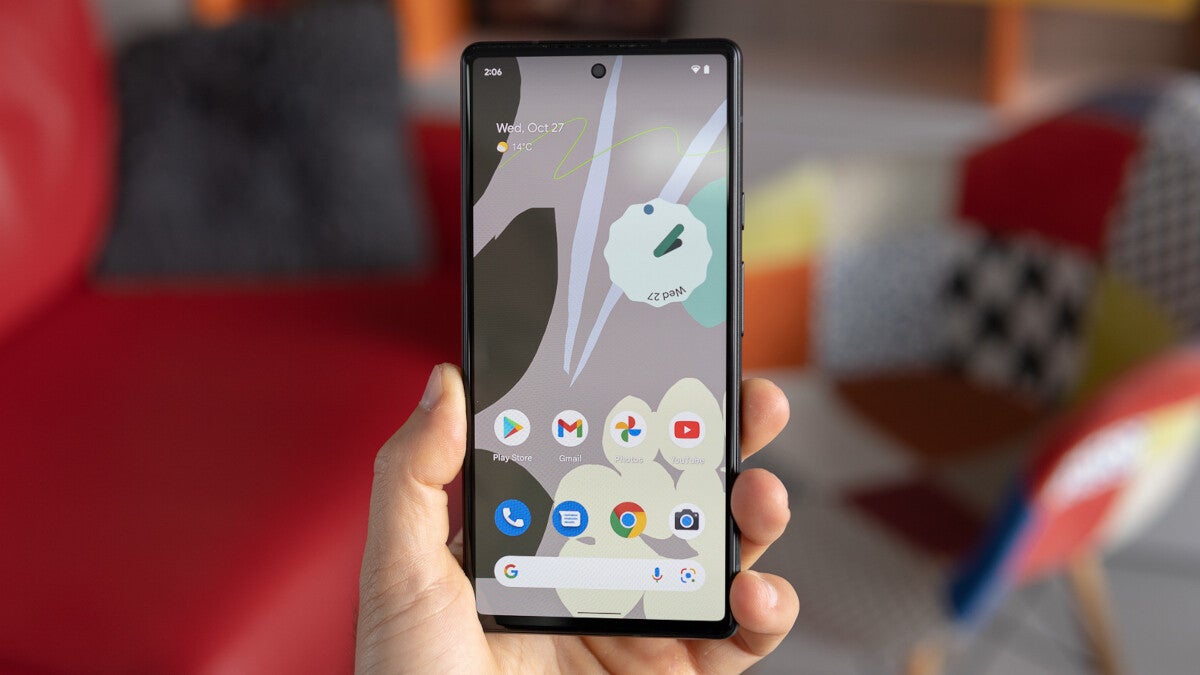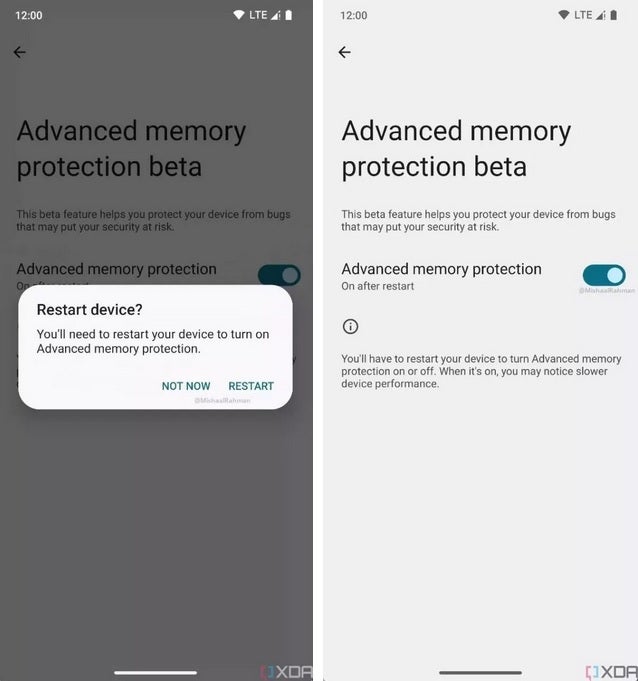Pixel 8, Pixel 8 Pro set to be the first phones with this Android 14 feature

With the Android 14 Developer Preview available, XDA's Mishaal Rahman discovered a security feature for the next Android build called Advanced Memory Protection. This is supposed to prevent phones from memory safety bugs. Google defines these as "errors in handling memory in native programming languages," and says that they "are the most common issue in the Android codebases. They account for over 60% of high severity security vulnerabilities and for millions of user-visible crashes."
These bugs negatively affect stability and account for most of the software crashes on Android devices. When you're running the Android 14 Developer Preview or the Android 14 Beta or the stable version of Android 14 (the latter two are forward-looking), go to Settings > Security & privacy > More security settings and toggle on Memory tagging.
Memory Tagging Extension (MTE) is a mandatory hardware feature on ARM V9 Central Processing Units (CPU) cores which protects your phone from memory violations that can break down the security of your device. In other words, MTE can protect your device from memory safety bugs. But here's the thing; since the Google Tensor 2 chip that powers the Pixel 7 series uses ARM's V8.2 CPU cores, this feature will not work on the Pixel 7 or Pixel 7 Pro.

The Pixel 8 series will be the first to have Android 14's Advanced Memory Protection
As a result, the Pixel 8 models, not expected to see the light of day until the final quarter of this year, could be the first phones to have this Android 14 memory protection. For this to be the case, the Tensor 3 chip will need to use ARM V9 CPU cores like those on the Snapdragon 8 Gen 1 and Snapdragon 8 Gen 2 chipsets. That is assuming that Google doesn't remove the feature prior to the release of the stable version of Android 14.
Before the current year comes to an end (and let's not hurry this since the hot weather is around the corner), we should see Google release the Pixel 8 series, the mid-range Pixel 7a, the Pixel Fold, and the Pixel Tablet. We expect the Pixel 8 series to be the only 2023 devices to use the Tensor 3 SoC.
To reiterate, since the Pixel 8 and Pixel 8 Pro could be the first phones running Android 14 to sport ARM's V9 CPU cores, the next full-size non-foldable Pixel line could be the first phones to support Android 14's new Advanced Memory Protection. Google states, "Given the ever increasing complexity of code, if left unattended, memory safety bugs are going to increase over time. Therefore, providing our ecosystem with the tools and technologies that can detect and mitigate such bugs is critical to our long term success."
This might be the solution to a problem that has negatively impacted Android for a long time. Google says, "Memory safety bugs have consistently been the top contributor to Android security vulnerabilities, going as far back as the first Android release."
Follow us on Google News













Things that are NOT allowed:
To help keep our community safe and free from spam, we apply temporary limits to newly created accounts: